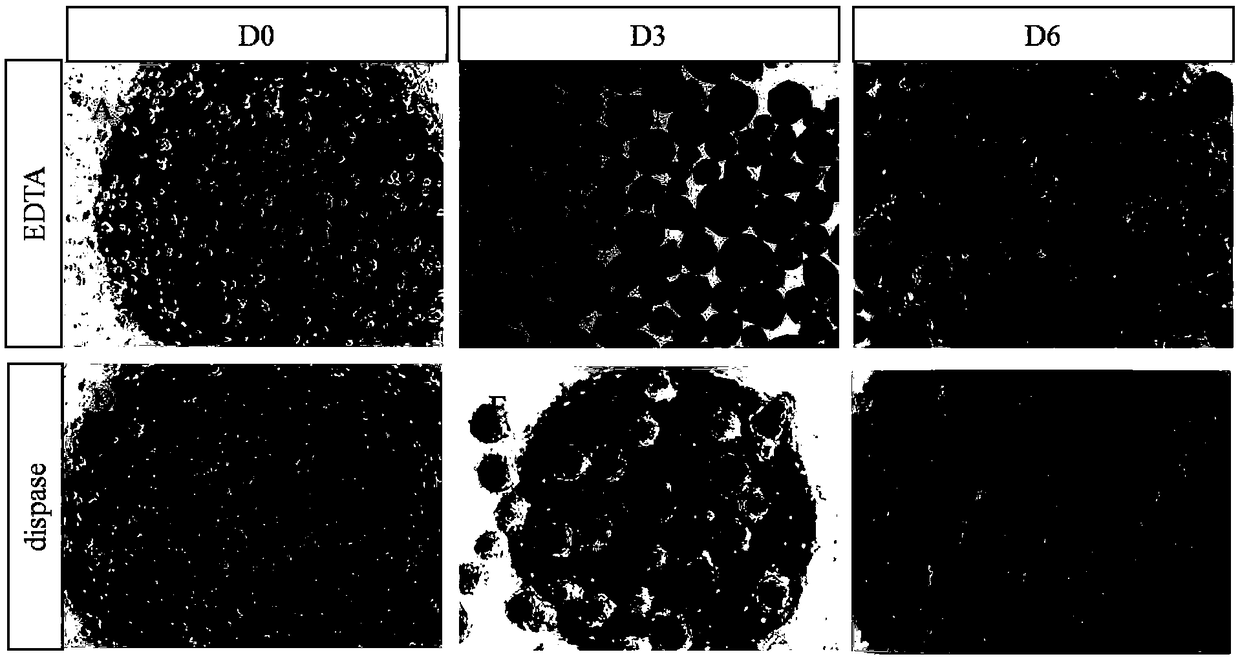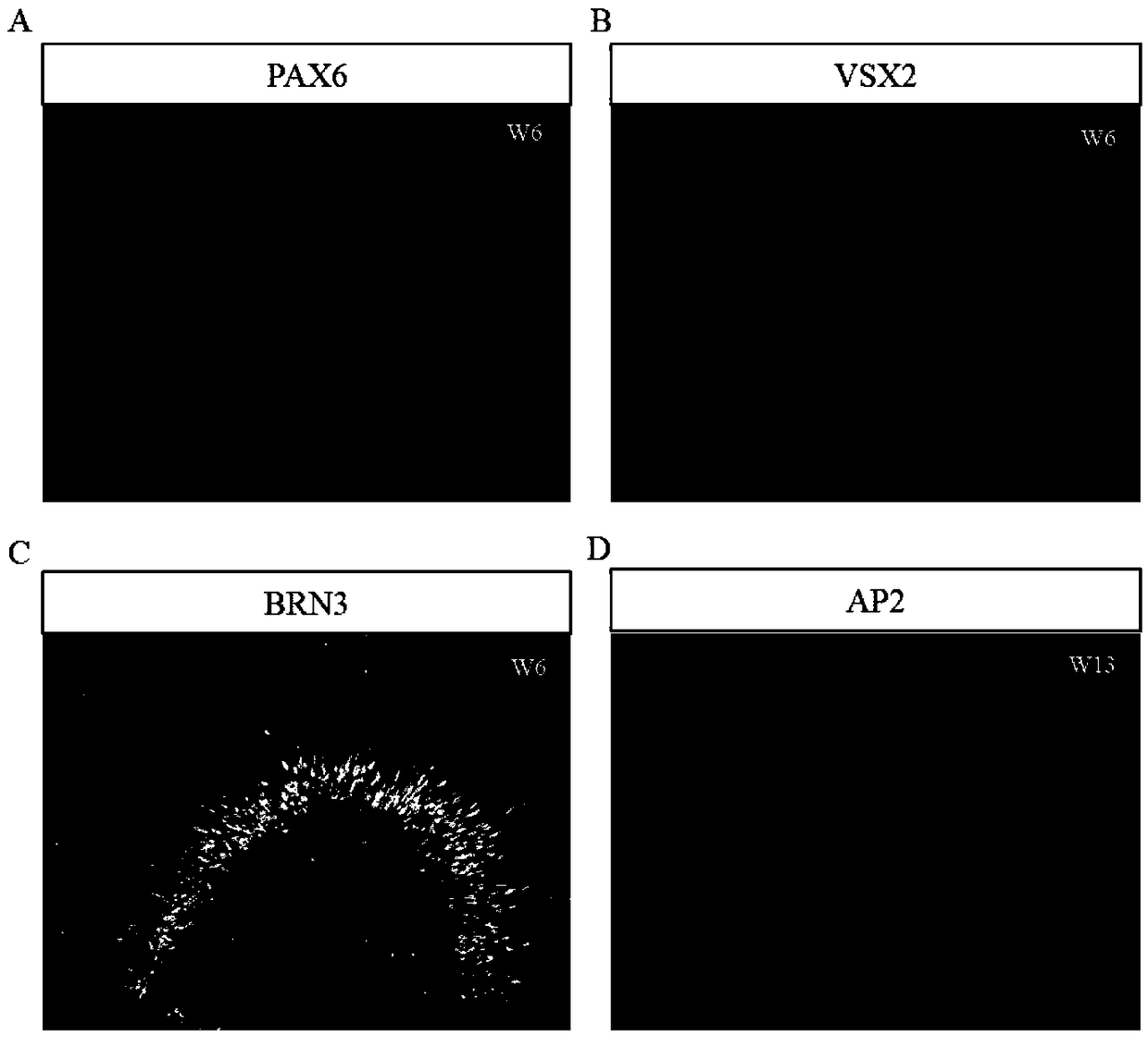Method for obtaining analogous retinal tissues rich in cone and rod cells by using human induced pluripotent stem cells
A technology of pluripotent stem cells and rod cells, applied in the field of stem cell regenerative biology, can solve problems such as difficult to meet the needs of clinical treatment, and achieve the effect of promoting clinical transformation application, increasing the risk of cell contamination, and reducing the risk of contamination
- Summary
- Abstract
- Description
- Claims
- Application Information
AI Technical Summary
Problems solved by technology
Method used
Image
Examples
Embodiment 1
[0025] 1. Maintenance culture of hiPSCs
[0026] 1. hiPSCs cells: human induced pluripotent stem cells derived from urine, cell line UE017
[0027] 2. Reagents and consumables:
[0028] 1) mTeSR1 medium: STEM CELL, #05851, 4°C
[0029] 2) EDTA: Invitrogen, 15575-038, room temperature
[0030] 3) dispase, sigma, D4693, normal temperature
[0031] 4) PBS (1X): Gino Biomedical Technology Co., Ltd., 14111202, room temperature
[0032] 5) Matrigel: Corning, 354277, -20°C
[0033] 6) Six-hole plate: FALCON, 353046
[0034] 7) Centrifuge tube: BD FALCON, 352096
[0035] 3. Instrument
[0036] 1) CO 2 Incubator: SANYO, MCO-20A1C
[0037] 2) Inverted microscope: Nikon, TS100
[0038] 4. Steps:
[0039] hiPSCs were maintained in mTeSR1 medium, and passaged when the density reached about 80%-90% of the bottom area (about 4-5 days), digested with 0.5mM EDTA or 1mg / mL dispase, the digested cells Seed on Matrigel-coated culture plates.
[0040] 2. The effect of the digestion mo...
PUM
 Login to View More
Login to View More Abstract
Description
Claims
Application Information
 Login to View More
Login to View More - R&D
- Intellectual Property
- Life Sciences
- Materials
- Tech Scout
- Unparalleled Data Quality
- Higher Quality Content
- 60% Fewer Hallucinations
Browse by: Latest US Patents, China's latest patents, Technical Efficacy Thesaurus, Application Domain, Technology Topic, Popular Technical Reports.
© 2025 PatSnap. All rights reserved.Legal|Privacy policy|Modern Slavery Act Transparency Statement|Sitemap|About US| Contact US: help@patsnap.com



